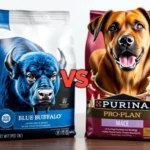
Introduction
Dog nutrition plays a crucial role in the health and well-being of our furry friends. As pet owners, we often look for ways to provide balanced and nutritious meals for our dogs, and one common question that arises is about the safety of certain human foods, particularly potatoes and sweet potatoes. This article explores the topic of can dogs eat potatoes sweet potato skins, providing insights into their nutritional value, potential risks, and best practices for incorporating them into your dog’s diet.
Understanding Dog Nutrition
The Basics of Canine Diet
To ensure optimal health, dogs require a balanced diet rich in essential nutrients. These include:
- Proteins: Vital for growth, development, and maintaining healthy muscles.
- Fats: Provide energy and support skin and coat health.
- Carbohydrates: Offer a source of energy and aid in digestion.
- Vitamins and Minerals: Crucial for various bodily functions, including immune response and bone health.
A well-rounded diet not only supports overall health but can also help prevent disease and promote longevity in dogs.
Common Human Foods Safe for Dogs
Many human foods can be safely enjoyed by dogs, such as:
- Carrots: High in fiber and low in calories.
- Green beans: A great source of vitamins and minerals.
- Pumpkin: Excellent for digestion.
However, it’s important to remember that moderation is key, and the preparation method matters. Always avoid adding ingredients like salt, butter, or spices, which can be harmful to dogs.
Potatoes and Their Nutritional Value
Nutritional Profile of Potatoes
Potatoes are a popular staple food among humans and can also provide certain nutritional benefits for dogs when prepared correctly. Here’s a breakdown of the macronutrients found in potatoes:
- Carbohydrates: A primary energy source.
- Vitamins: Potatoes are rich in Vitamin C and Vitamin B6.
- Minerals: They contain potassium, which is important for heart and muscle function.
The nutritional benefits of potatoes can help provide energy to active dogs and serve as a filler in their diet.
Potential Risks of Potatoes
Despite their benefits, there are risks associated with feeding dogs potatoes. Raw potatoes, particularly green ones, contain solanine, a toxic compound that can cause gastrointestinal distress and other health issues in dogs. Symptoms of potato poisoning may include:
- Vomiting
- Diarrhea
- Lethargy
- Confusion
To safely incorporate potatoes into your dog’s diet, they should always be cooked thoroughly, as cooking reduces solanine levels significantly.
Sweet Potatoes and Their Nutritional Value
Nutritional Profile of Sweet Potatoes
Sweet potatoes are often hailed as a superfood for both humans and dogs. Here’s what makes them nutritionally superior:
- High in fiber: Promotes healthy digestion.
- Rich in vitamins: Particularly Vitamin A, which supports vision and immune function.
- Low in fat: Makes them a healthy addition to a dog’s diet.
The combination of these nutrients makes sweet potatoes a fantastic option for dogs, providing energy without excessive calories.
Cooking and Serving Suggestions
To maximize the benefits of sweet potatoes for dogs, consider the following cooking methods:
- Boiling: Retains most nutrients without adding unnecessary fats.
- Baking: Enhances flavor while keeping the nutritional profile intact.
- Mashing: An easy way to mix with other dog-friendly foods.
When serving sweet potatoes, it’s best to avoid added ingredients like butter, salt, or sugar. As a general guideline, a small dog can have about 1-2 tablespoons of cooked sweet potato, while larger dogs may enjoy up to half a cup.
The Skin Debate: Potatoes vs. Sweet Potatoes
Can Dogs Eat Potato Skins?
Potato skins provide some nutritional value, containing fiber and additional vitamins. However, there are risks associated with feeding potato skins to dogs:
- Toxicity risk: Skins from unripe or green potatoes may contain higher levels of solanine.
- High fiber content: While fiber is beneficial, too much can lead to digestive upset.
It’s best to avoid giving your dog potato skins to prevent any potential risks.
Can Dogs Eat Sweet Potato Skins?
Sweet potato skins, on the other hand, are generally safe for dogs to consume. They are rich in fiber, which can aid in digestion and provide additional nutrients. However, it’s important to:
- Wash thoroughly: To remove any pesticides or dirt.
- Cook properly: Cooking helps break down tough fibers, making them easier for dogs to digest.
Moderation is key; a small amount of sweet potato skin can be a healthy addition to your dog’s diet.
How to Incorporate Potatoes and Sweet Potatoes into Your Dog’s Diet
Recommended Preparation Methods
When preparing potatoes and sweet potatoes for your dog, adhere to these best practices:
- Boiling: This method is often the healthiest, as it doesn’t require added fats.
- Baking: A tasty option that enhances flavor without compromising nutrition.
- Mashing: Ideal for mixing with other ingredients.
Always avoid using butter, salt, or spices, as these can be harmful to dogs.
Portion Control and Frequency
Introducing potatoes and sweet potatoes into your dog’s diet should be done gradually. Here are some guidelines:
- Small servings: Start with small portions to see how your dog reacts.
- Frequency: Treat potatoes and sweet potatoes as occasional additions to their meals, not daily staples.
- Watch for reactions: Monitor your dog for any signs of digestive upset, such as diarrhea or vomiting.
Alternatives to Potatoes and Sweet Potatoes
Other Safe Vegetables for Dogs
If you’re looking for alternatives to potatoes and sweet potatoes, consider these dog-friendly vegetables:
- Carrots: Crunchy, low-calorie, and high in vitamins.
- Peas: Packed with protein and fiber.
- Zucchini: Low in calories and great for hydration.
These vegetables can provide variety in your dog’s diet and contribute to their overall health.
When to Consult a Veterinarian
When introducing new foods to your dog, it’s crucial to be observant. Signs of food intolerance or allergies can include:
- Itching or skin irritations.
- Gastrointestinal issues like vomiting or diarrhea.
If you notice any of these symptoms after introducing potatoes or sweet potatoes, consult your veterinarian for advice.
Conclusion
In conclusion, both potatoes and sweet potatoes can be beneficial for dogs when prepared and served correctly. While can dogs eat potatoes sweet potato skins is a common question, it’s essential to remember the potential risks associated with raw potatoes and potato skins. Sweet potato skins, however, can be a healthy addition to your dog’s diet.
Always prioritize moderation and proper preparation to ensure your dog’s safety and health. By making informed decisions about their diet, you can help your dog thrive.
FAQ Section
Common Questions About Dogs and Potatoes
Can dogs eat raw potatoes?
No, raw potatoes contain solanine, which is toxic to dogs. Always cook potatoes thoroughly before serving.
What if my dog accidentally eats a potato skin?
If your dog consumes a potato skin, monitor them closely for any signs of distress. If they show symptoms like vomiting or lethargy, contact your veterinarian.
Are there any potato varieties that are more suitable for dogs?
Sweet potatoes are generally considered a healthier option for dogs compared to regular potatoes, due to their superior nutritional profile.
Sweet Potatoes vs. Regular Potatoes: Which is Better for Dogs?
Sweet potatoes are often the better choice for dogs due to their high fiber content, vitamins, and lower glycemic index, making them a healthier carbohydrate option.
How to Identify Potato Poisoning in Dogs
Symptoms of potato poisoning in dogs may include:
- Vomiting
- Diarrhea
- Lethargy
- Confusion
If you suspect your dog has ingested toxic amounts of potatoes, seek veterinary care immediately.









